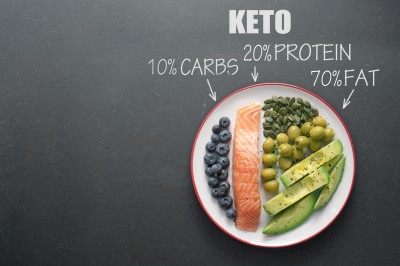Free shipping for orders over 39.00€
Βreastfeeeding and everything we know about it!

The magical relationship of a mother with her baby -which comes to the world after nine months- continues through breastfeeding, from even the very first hour of birth. Breastfeeding is the gift of life offered by the mother to the infant and encompasses-in addition to its survival – the protection, warmth, shield of the virgin organism that has just come into the world.
During the first 24 hours of its life, the baby -through breastfeeding- receives colostrum, a dilute pale-yellow liquid that is produced by the mother's body in a small quantity but with a unique value. Colostrum has a low-fat content, so it is easier to digest, while it has a high antibody content so that newborns are resistant to infections.
World Health Organization, UNICEF, and the National Breastfeeding Committee have highlighted the maximum importance of breastfeeding and urge mothers to breastfeed exclusively in the first 6 months of the infant's life (without the addition of substitutes and supplements) while advising, if possible, to continue breastfeeding together with solid nutrition, until the age of 2 years.
Why breastfeed?
In addition to the undeniable advantages of breastfeeding over bottle-feeding, the quintessence of this act is concentrated in the relationship the mother builds with her infant. The baby, embracing its mother's body, feels protection and warmth, like the one it enjoyed for nine months inside her body, feeling her movements, emotions, experiencing every second the beats of her heart.
Furthermore, the mother also receives the same tranquility and jubilation, feeling that her baby is nourished by her own body, turning breastfeeding into an unrepeatable moment.
Breastfeeding is a purely personal decision of the mother and, although it is commonly known that breast milk is the best for the baby, however, less than half of mothers breastfeed their babies until the age of six months, using different excuses to explain this attitude. That makes scientists urge mothers to be informed about the advantages of breastfeeding over artificial nutrients.
What are the benefits of breastfeeding?
To the child
Physical contact and breastfeeding are what create the strong bond between the mother and the infant, the magical one that will follow them throughout their lives. Every infant in its mother's arms feels joy, protection, confidence, and through breastfeeding, the child's mental health is being built.
Breast milk has all those special nutrients that are perfectly adapted to the specialized needs of the human organism. In the first year of our life, the brain is the organ that develops more than any other, and breast milk has everything it needs for its development, which is why it is considered irreplaceable!

In addition, breast milk is free of microbes and contains antibodies, enzymes, leukocytes, and other substances that protect the infant mostly from infections, making digestion and absorption of nutrients easier.
Breast milk acts as a "protection shield" against obesity and accompanying diseases (coronary heart disease, hypertension, diabetes mellitus).
A child who is breastfeeding will rarely experience an allergic condition (i.e., asthma), colic, and constipation. Also, it will not experience convulsions from a lack of calcium.
To the mother
While breastfeeding, the uterus returns quickly to its normal state. At the same time, breastfeeding acts as a contraceptive, since, during it, ovulation is inhibited, and the probability of a pregnancy is very small.
Breastfeeding protects against breast cancer, as it is rarer in breastfeeding mothers, which is of high importance for women with a family history of this cancer.
Breast milk is available at any time of the day and night, at the right temperature, and at no cost!
Breastfeeding - through oxytocin hormone, which is produced by the body - helps regulate the mother's body weight. In the first half, mommy should not lose more than 1.5 kg of body weight while she should not receive less than 1800 calories per day.
Breastfeeding can have all the above benefits but in no case should it be considered an easy and hassle-free procedure.
Breastfeeding is considered difficult when the baby is very premature, or when the mother has ingrown nipples (so the baby cannot grasp the breast), even when the mother has mastitis.
In no case, however, is breastfeeding impossible. Even in the above cases the mother with the help of a breastfeeding consultant can cope and breastfeed her baby.
Also in cases that mother takes medications, caution is needed as these can pass with breastfeeding to the baby. The mother with the help of a properly trained health professional can check whether or not she can breastfeed while taking her medication.
An important helper in breastfeeding is the official e-lactancia page which provides official information regarding the risk of medication and breastfeeding.
For more information on breastfeeding, check out:






